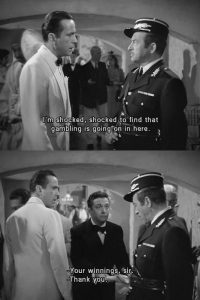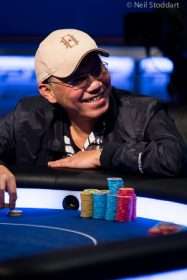Paul Phua, 14 Others Acquitted in Macau Sports Betting Trial
International gambling giant Paul Phua Wei Seng has again escaped the grasp of legal authorities, this time in Macau, where a court has acquitted Phua and 14 others of conducting illegal gambling operations during the 2014 FIFA World Cup.
News of the ruling rendered by Macau’s Court of First Instance (TJB) first emerged via a Macau News Agency update on the ongoing court proceedings, which began earlier this month. Phua and the case’s other 14 defendants were among 21 people arrested on June 19, 2014, after a raid on four or five rooms at the Wynn Macau casino property. Phua had arrived there only a couple of days earlier, and after the arrests and his subsequent release, he quickly traveled to Las Vegas to allegedly set up a larger similar boiler-room sports betting operation from three luxury villas at Las Vegas’s Caesars Palace.
The Macau-based operation ran from approximately June 7 to June 19 of 2014, according to Macau authorities, who asserted that roughly HK$1.16 billion (US$147.7 million) in wagers, mostly on World Cup games, occurred during that stretch.
 However, though the Macau investigators seized ample evidence that some form of gambling enterprise had been going on in the rooms, they failed to tie that evidence directly to any of the 15 people eventually charged. Phua, was asserted to be the mastermind of the entire scheme. One of the rooms at the Wynn Macau that was targeted in the the June 2014 raids had been rented by Phua for several years.
However, though the Macau investigators seized ample evidence that some form of gambling enterprise had been going on in the rooms, they failed to tie that evidence directly to any of the 15 people eventually charged. Phua, was asserted to be the mastermind of the entire scheme. One of the rooms at the Wynn Macau that was targeted in the the June 2014 raids had been rented by Phua for several years.
According to the case’s presiding judge, Lei Wai Seng, neither Macau’s Public Prosecutors Office (MP) nor its Judiciary Police (PJ) offered proof that any or all of the defendants were accepting wagers on the World Cup matches, processing them on behalf of bettors. Though presumptive, the online wagering activity was likely connected to the “offshore” IBCBet site later connected to Phua, which later rebranded to MAXBet.
The evidence of sports-betting operations included information several laptops, betting slips, and cellphones, all of which were seized during the June 19, 2014 raids. However, the seized records and devices did not include bettors’ names, nor were the people arrested able to be tied in an ownership sense to the devices being used. There also seems to have been some very casual control over the evidence following the raids, as one of the devices was found to have been used in connection with wagering activity after the original raids and arrests.
According to Macau News Agency, Judge Lei Wai Seng found the case unconvincing, saying, “If a team won a match how would the group attribute the earnings [without a name]? The court can’t make any connection […]. There is a lack of connecting elements.”
Exactly how much effort the Macau authorities put into the case after the raids occurred will always remain an unanswered question. Court documents from the related US case included third-party testimony that Phua didn’t think the Macau case would amount to more than a big fine when all was resolved — and whether such a fine was informally paid isn’t known. None of the 15 defendants in the case even returned to Macau for the recent proceedings.
Phua, a Malaysian national who maintains a level of diplomatic immunity due to his purchasing of an ambassadorship from San Marino several years ago, ends up beating the rap again, though Macau may now be a no-go jurisdiction. Phua’s legal troubles have also dampened the brief life of Macau as the global hub of high-stakes poker action. Nosebleed games in Macau centering on Phua, his son Darren Phua, and including prominent pros from around the globe have largely died out since Phua’s 2014 arrests.




















COMMENTS